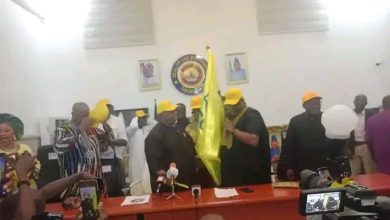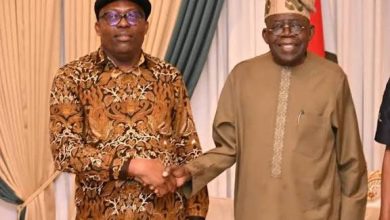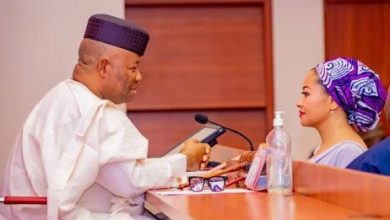President Tinubu Reshuffles Service Chiefs Amid Reports of Foiled Military Coup Plot

By Passman Akpos
Abuja — In a dramatic reshuffle of military leadership on Friday, Bola Tinubu announced changes in the hierarchy of the service chiefs to “strengthen the national security architecture,” according to a press release from the Office of the President of Nigeria.
In the same week, media reports surfaced of an alleged coup plot within the Armed Forces of Nigeria aimed at overthrowing the Tinubu administration—turning the leadership change into a high-stakes political move.
Major Leadership Changes
The presidential statement noted the following appointments with immediate effect:
Olufemi Oluyede named Chief of Defence Staff, replacing Christopher Musa.
W. Shaibu appointed Chief of Army Staff.
S.K. Aneke becomes Chief of Air Staff.
I. Abbas appointed Chief of Naval Staff.
E.A.P. Undiendeye retains his post as Chief of Defence Intelligence.
The President expressed appreciation for the outgoing chiefs, especially General Christopher Musa, for their “patriotic service and dedicated leadership.” He charged the new appointees to justify the confidence placed in them and to promote professionalism, vigilance and comradeship in the armed forces.
Context: Alleged Coup Plot
Earlier this month, multiple reports claimed that up to 16 officers—including a Brigadier-General—were detained by the Defence Intelligence Agency on suspicion of planning a coup to overthrow President Tinubu’s government. According to an insider source, the officers were “planning a military takeover” and holding secret meetings.
However, the military officially denied any coup plot, describing the story as “entirely false, malicious and intended to cause unnecessary tension” in the country. The government also reiterated that it had full confidence in the armed forces’ loyalty to the constitution.
While the reports remain unconfirmed, observers say the timing of the reshuffle just days after the coup chatter suggests a signal both to the military and the nation that the presidency is firmly in control.
Significance & Reaction
The leadership changes come at a time of heightened concern over security and political stability in Nigeria. Analysts say:
The overhaul may be intended to shore up loyalty among senior officers and disrupt any lurking disaffection.
By replacing the top leadership, President Tinubu appears to be asserting his authority as Commander-in-Chief and sending a message of zero tolerance for dissent.
Some opposition voices and civil-society actors are calling for transparency in how the alleged coup plot and detentions are handled, fearing a cover-up or politically motivated purge.
For many Nigerians, the episode underscores persistent fears of military interference in politics—even as the country remains under civilian rule. The dual developments of an alleged coup scare followed by sweeping military changes may raise questions about internal discord in the armed forces, or alternatively about how such reports are used politically.
What to Watch
The new service chiefs will be under close scrutiny to deliver on national security, especially amid rising threats from insurgency, banditry and regional instability.
How the investigation into the alleged plot proceeds—whether charges are filed, trials conducted, or a formal statement released—will indicate how seriously the government treats civil-military relations.
The impact of the reshuffle on morale within the armed forces, and whether any additional changes at lower ranks follow the headline appointments.
Public and media reaction—if the perception becomes one of political consolidation rather than genuine reform, trust in the military and presidency may erode.
In sum, President Tinubu’s decision to change the top brass of the military appears both as a pre-emptive move and a reaction to an internal crisis. With rumours of a coup still swirling and the official narrative denying such a plot, this reshuffle could mark a turning point in civil-military relations under his administration.





